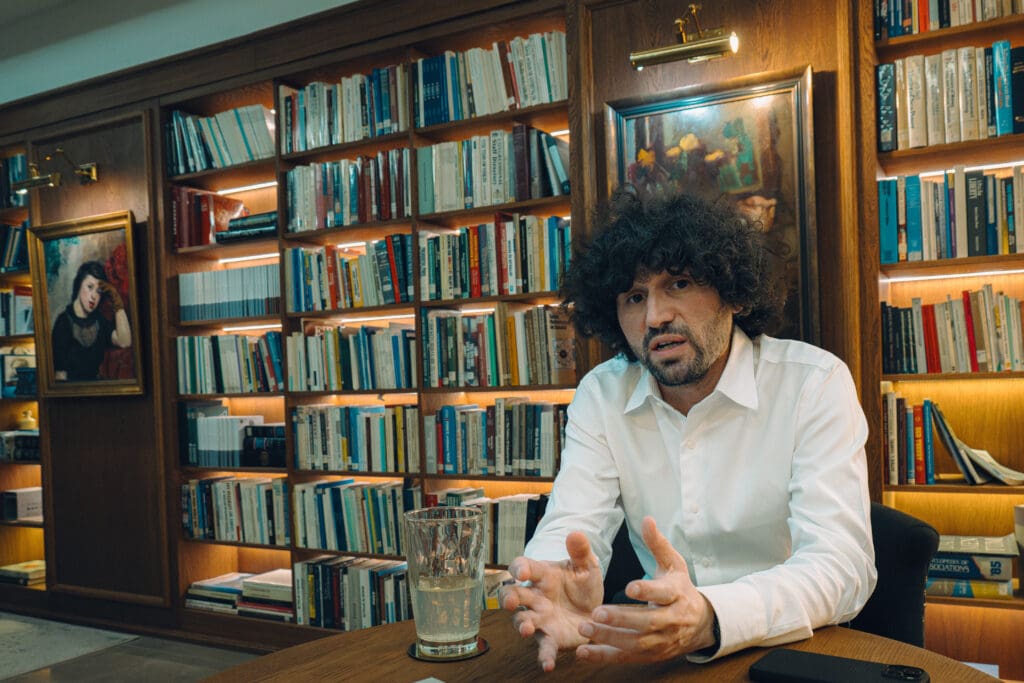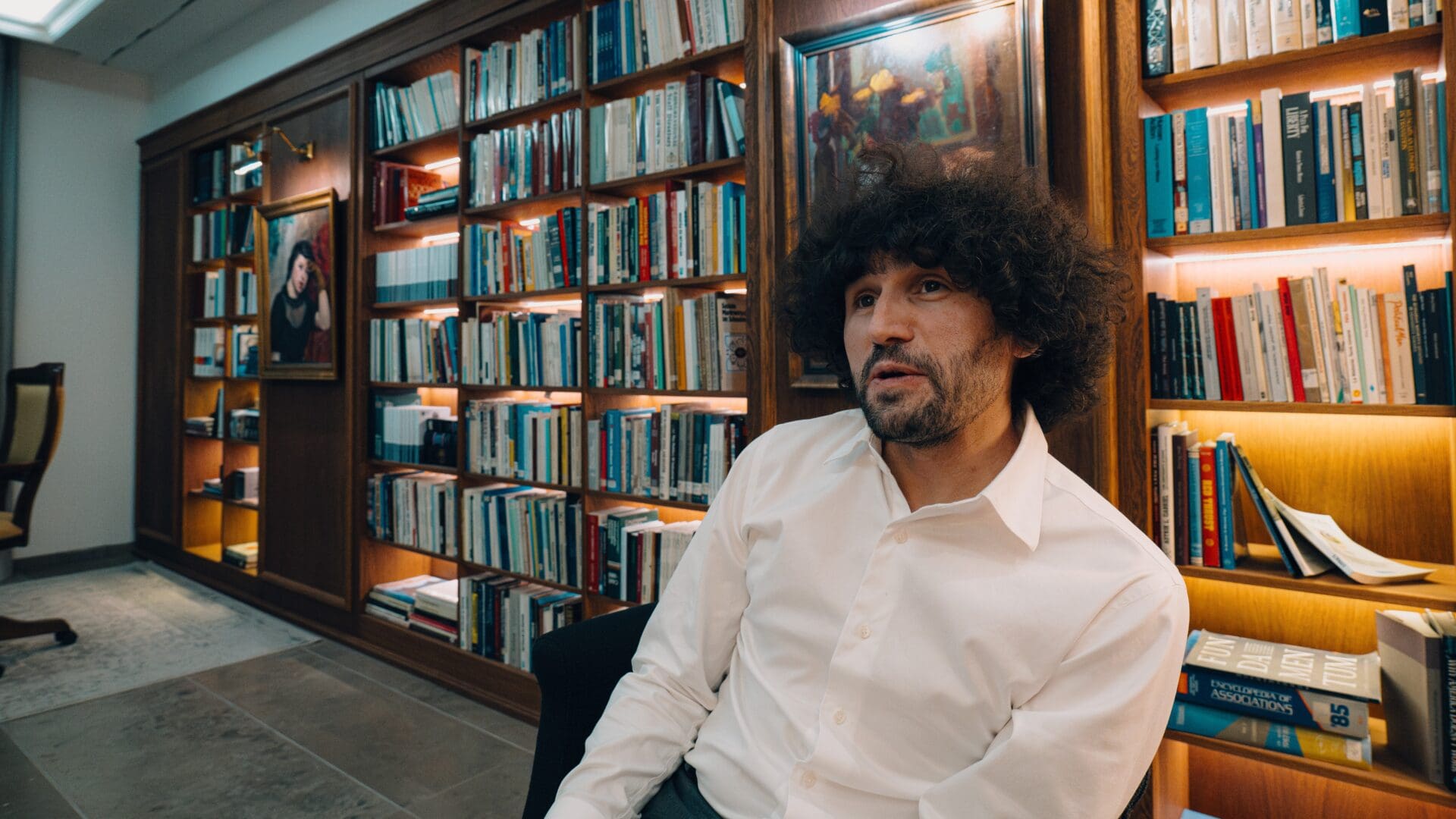Leonardo Orlando holds a PhD in Political Science and International Relations from Sciences Po Paris. He was a Postdoctoral Researcher in Cognitive Science and Evolutionary Psychology at École Normale Supérieure de Paris, and holds bachelor’s and master’s degrees in Philosophy from the Université Paris 1 Panthéon-Sorbonne. He has been a Research Fellow at the Centre for International Studies of Sciences Po Paris (CERI), at the French Institute for Research in Africa (IFRA-Nairobi) and at Consejo Nacional de Investigaciones Científicas y Técnicas (CONICET, Argentina), as well as Visiting Scholar at The Fletcher School of Law and Diplomacy at Tufts University, at the University of Oslo and at the University of Economics in Bratislava. He has lectured in France, at Sciences Po Paris and at Sorbonne, and served as Assistant Professor in Argentina, at the Universidad de Ciencias Empresariales y Sociales (UCES) and at the Universidad Argentina de la Empresa (UADE). His research focuses on biological and evolutionary approaches to political behaviour. Currently he’s studying the collapse of the higher education system and how this affects society and jeopardizes the future of the West. We interviewed him in Budapest, where he came at the invitation of the Mathias Corvinus Collegium and the Danube Institute.
***
As an academic, have you ever come face to face with cancel culture?
Yes, I had the opportunity to experience cancel culture first hand; I was going to teach evolutionary approaches to political behaviour at Science Po Paris, but in the end I was not allowed to. I obtained a PhD in political science and international relations, and also did a postdoc in cognitive science and evolutionary psychology. So, as an academic, I have been connected with Sciences Po for some time, and in the spring of 2022, I was preparing to teach two courses in that semester: one was on evolutionary political psychology, the other, which we were going to teach with philosopher Peggy Sastre, was on evolution and biology applied to gender. And the classes had been confirmed with the classroom, time, everything for a long time—but nine days before the beginning of the semester the courses were cancelled because the institution’s dean received a call from the gender scholars of Sciences Po. At this very particular moment, there were 82 classes about gender issues from the point of view of the denial of biology at Science Po—and it seems that there was no place for one that looked at the question of gender from an evolutionary and biological point of view. This eventually led to me giving up my academic career.
Do you think this behaviour or attitude is typical of European institutions in general?
Yes, unfortunately, I think this kind of attitude can be considered general. In fact, that very spring in 2022 the Humboldt University of Berlin cancelled a gender lecture after it was pressured to do so by gender activists. They accused the lecturer of transphobia. The lecture was titled ‘Gender is not sex and sex is not gender and why there are two genders in biology’. Not long after that, there was another case at the University of the Balearic Islands, where the book written by two professors of psychology on the same subject could not be presented. Three different cases in different parts of Europe, with the same end result. This has become common in Europe. Let’s remember that philosophy professor Kathleen Stock had to resign from the University of Sussex after she wrote in a book that there are men and women, and that you cannot become a woman just because you say so. We now live in a world where common knowledge is being cancelled.

And how does all this affect education in academic life?
It just ruins it.
What is happening at universities is progressive indoctrination.
There is no place for science regarding human nature in universities. It must be understood that anyone who wants to prosper in academic life must follow this trend. As a result, researchers are often cautious in formulating their hypotheses in sensitive areas, because they are afraid that they too will become victims of cancel culture. As the French anthropologist Pascal Boyer wrote, the social sciences at some point in history made the fatal mistake of separating biology from the study of human nature. Now we are seeing the terrible consequences of this.
Do you see a way for the social sciences to overcome these kinds of problems?
The only way to understand the social sciences is through Darwinian social sciences. This does not mean that Darwin should be applied to everything. But just as physics cannot contradict mathematics, neither can social sciences contradict biology and the theory of evolution. This is what I call a ‘Darwin test’ that we should apply to those claiming to explain social phenomena. Let’s say that we want to analyse which candidates were voted for in Ireland, Hungary or the United Kingdom. If we only state on a descriptive level how many people voted for one party and how many voted for the other, that is perfectly fine as long as we do not put a social science explanation behind the data. But if we try to explain why these people voted for a particular candidate in the election, we must ask whether the explanation contradicts the theory of evolution. Because if what we claim contradicts the theory of evolution, then what we claim is nonsense. By contrast, researchers at universities today have to go against the theory of evolution in order to get funding from the European Commission—and advance their careers.
Is there any political pressure on universities to push this kind of gender agenda?
I think this varies from case to case: it can happen in one country, but not in another. The fact is that there are two types in universities: on the one hand, those academics who really believe in this nonsense, and on the other hand, those who are too afraid to speak out, so they prefer to go with the herd. So there is no need for anyone to put political pressure on them, they do it themselves, and so the money also flows to them.

Evolutionary psychology is a field dealing with the evolutionary roots of human behaviour, trying to understand human traits based on what selective advantage they may have had during human evolution. How does gender ideology mix it all up?
By the fact that gender ideology denies all of this. If they say that there is no difference between men and women, and you say that there is a difference, then they say that it is discrimination. Let’s say 90 per cent of engineers are men. The explanation that they give for this is that it is because of discrimination. But if we look at the issue, for example, in societies that excel at gender equality, such as the Scandinavian countries, we actually see that there are far fewer female engineers than men. However, the same statement no longer holds true in male-dominated societies such as Iran, where there are certainly more female engineers. Gender ideology explains this with socialization, which is at least as wrong as saying the Earth is flat. In reality, however, males and females have different preferences, different behaviours that respond to different evolutionary paths regarding reproduction, because what is best for women is not what is best for men. For example, men have a much greater sexual drive, while women are pickier. The reason behind it is that let’s say in a one-year period, a man can have hundreds of children if he has access to hundreds of fertile women, but even if a woman has access to hundreds of fertile men, she can still only have one child.
Hungary takes a stand against the spread of this kind of madness on the international stage, and this Hungarian resistance usually causes a lot of disapproval from the international liberal community. When it speaks up against the spread of gender ideology, is Hungary a vocal minority or can it be considered as one of the advocates of the silent majority?
I don’t have extensive knowledge of Hungarian domestic politics, as unfortunately I don’t speak the language, so I can’t get first-hand information from the Hungarian press. However, I know and understand exactly what the liberal media say about other countries, such as Argentina, which in most cases is completely false. What I know for sure is that
if we were to believe the Western press, then we would be talking to each other in a dictatorship right now,
and not after an event where, despite the sensitive topic of my lecture entitled ‘A Darwinist Journey into Gender’, security guards were not needed. In France, Spain, Belgium, the Netherlands and many other countries, it would be impossible to hold such an event without security measures. Hungary assumes this role of questioning the spread of gender ideology, and that is why the European Commission is waging war against it. I was outraged to learn, for example, that the Erasmus opportunity is being denied to Hungarian students and researchers. As a former Erasmus student, this particularly upsets me. In the meantime, it turns out that the EU has awarded funds of almost two million euros to the Islamic University of Gaza, which is connected to the terrorist organization Hamas. This is absolutely insane.








